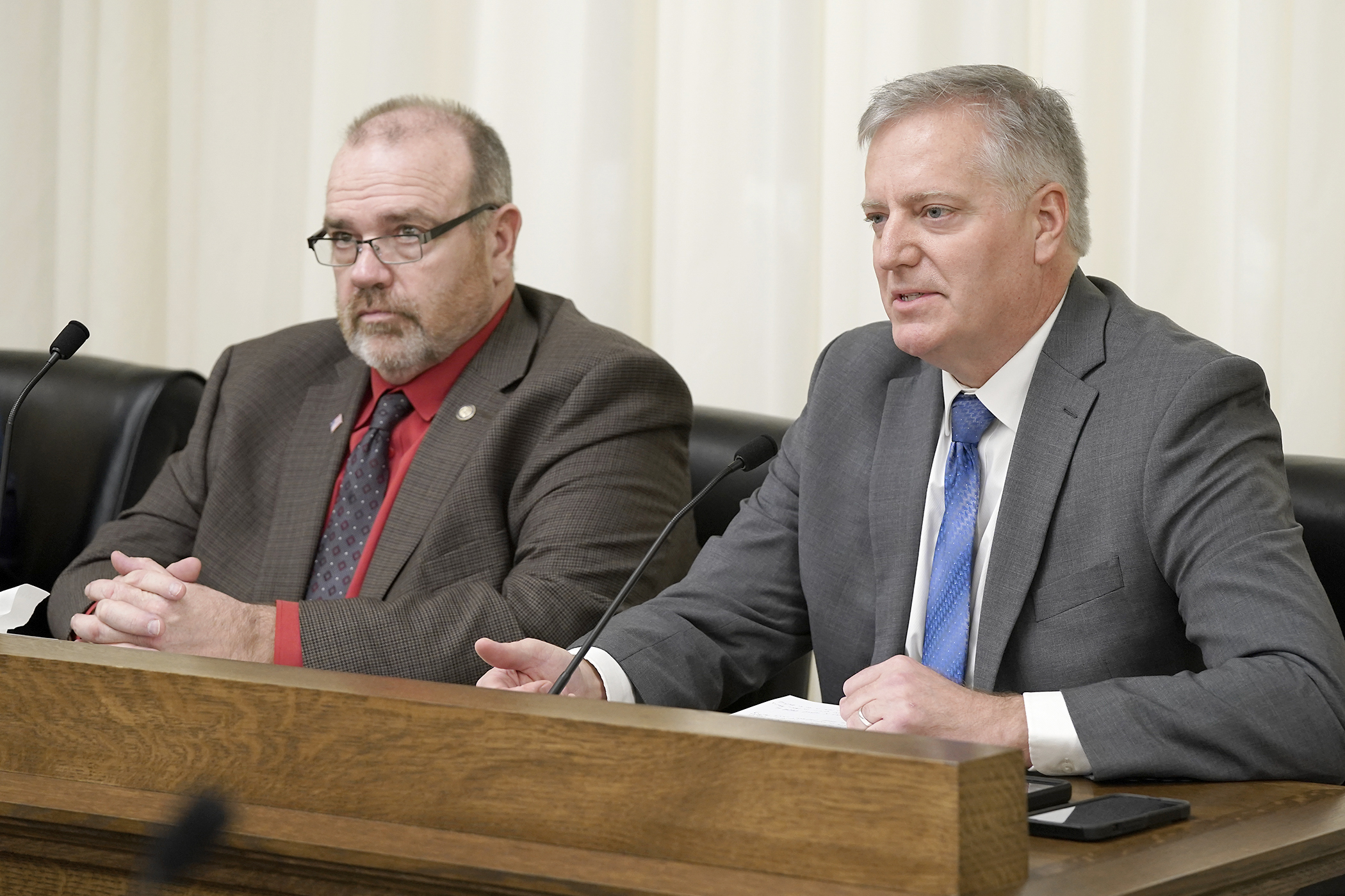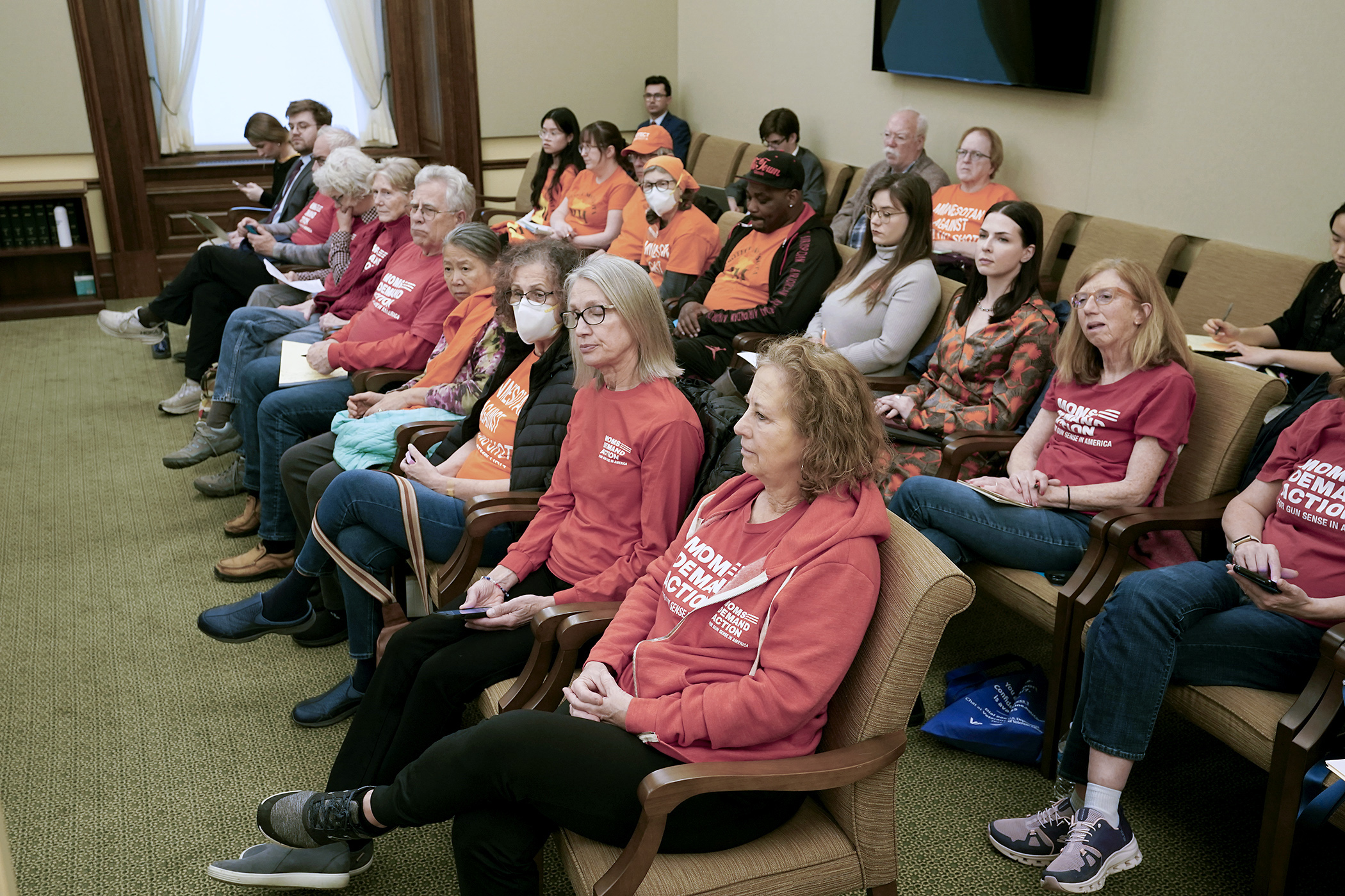Divided public safety committee approves bill broadening self-defense rights

Whatever name is used, the “castle doctrine” or “stand your ground” laws specify that using deadly force in self-defense is warranted in certain circumstances.
What those exact circumstances are were debated at the House Public Safety Finance and Policy Committee Wednesday, which approved a bill that would allow a person to use reasonable force in self-defense “regardless of whether a reasonable possibility of retreat to avoid the danger exists.”
Currently, a person must not have had a reasonable possibility to retreat to avoid the danger before using force in self-defense.
Bill sponsor Rep. Matt Bliss (R-Pennington) said HF13 would correct what he called an erroneous July 2024 Minnesota Supreme Court decision in State v. Blevins that held that the duty to retreat applies to so-called “fear” assaults involving the threatened use of a deadly weapon in addition to physical actions to actually cause harm to another person.
“We are the only state that requires the need to find a way out, or duty to retreat, even in just the threat to your aggressor,” Bliss said.
He said his bill would ensure that people who didn’t seek a way to retreat cannot be held liable if they just make the threat of a use of force against an aggressor.
The committee approved the bill on a 10-8 party-line vote. Its next stop is the House Floor.
Several DFL members and gun-control groups said giving more leeway to initiate self-defense force would make society a lot less safe, and that the bill would in essence allow a person “to shoot first and ask questions later.”
Brian Gosch, the NRA’s state director for five states that include Minnesota and South Dakota, said that expanding the situations where stand your ground laws apply, as proposed by HF13, “guarantee you have the right to protect yourself and your loved ones.”
He said the fears that these proposed changes will lead to more gun violence are unfounded.
South Dakota has the strongest stand your ground language in the United States, he said, adding that “if you search the headlines, you’re not going to find problems in South Dakota for giving citizens the right to defend themselves.”
What the bill would change
Minnesota and federal courts have placed limits on when a person could legally act in self-defense.
Those limits include these four standards a person must satisfy before using force against another person or assist another person in resisting unlawful aggression:
- the person must not have been the aggressor or provoked the situation;
- the person must have actually believed that the situation created an imminent danger of bodily harm;
- the person’s fear must be based on a reasonable view of the situation; and
- the person must not have had a reasonable possibility to retreat to avoid the danger.
The bill would eliminate the last provision of the “reasonable possibility to retreat” condition and instead allow a person to use reasonable force in self-defense “regardless of whether a reasonable possibility of retreat to avoid the danger exists.”
The bill would not change existing law stating the level of force a person uses must not be excessive and a person cannot use deadly force unless the person reasonably believes that the other person is threatening to cause great bodily harm or death.
Minnesota has a version of the “castle doctrine” which says that people in their homes are not required to retreat and can use deadly force to prevent the commission of any felony inside the person’s home. The level of force used within a home must still be reasonable – if a threat ends, the right to use force ends.
 Gun safety advocates attend the House Public Safety Finance and Policy Committee Feb. 26. (Photo by Michele Jokinen)
Gun safety advocates attend the House Public Safety Finance and Policy Committee Feb. 26. (Photo by Michele Jokinen)Opposition
Opposition to the proposed measure came from DFL members and several gun-control groups who testified against HF13.
A letter sent to the committee from The Brady Campaign to Prevent Gun Violence states “this bill would empower a person to disregard viable escape options to use force when it is not necessary. Privileging violence over de-escalation, as this bill does, callously disregards human life without offering any additional self-defense benefit.”
“Do we really want us to live in a state where people are routinely shot to death over parking spaces?” asked Maggiy Emery, executive director of Protect Minnesota.
“Another deeply troubling aspect of shoot-first laws is their racially biased application,” she said.
A study by the Urban Institute found that when a white shooter kills a Black person, the homicide is 350% more likely to be ruled justified than if the roles were reversed, she said.
Two amendments offered by DFL members did not prevail. An unsuccessful amendment offered by Rep. Athena Hollins (DFL-St. Paul) would have added a provision for the safe and secure storage of firearms.
An amendment unsuccessfully offered by Rep. Dave Pinto (DFL-St. Paul) would have added a duty to report the loss or theft of a firearm to a local law enforcement agency. Both failed on party-line 8-10 votes.
Related Articles
Search Session Daily
Advanced Search OptionsPriority Dailies
Speaker Emerita Melissa Hortman, husband killed in attack
By HPIS Staff House Speaker Emerita Melissa Hortman (DFL-Brooklyn Park) and her husband, Mark, were fatally shot in their home early Saturday morning.
Gov. Tim Walz announced the news dur...
House Speaker Emerita Melissa Hortman (DFL-Brooklyn Park) and her husband, Mark, were fatally shot in their home early Saturday morning.
Gov. Tim Walz announced the news dur...
Lawmakers deliver budget bills to governor's desk in one-day special session
By Mike Cook About that talk of needing all 21 hours left in a legislative day to complete a special session?
House members were more than up to the challenge Monday. Beginning at 10 a.m...
About that talk of needing all 21 hours left in a legislative day to complete a special session?
House members were more than up to the challenge Monday. Beginning at 10 a.m...